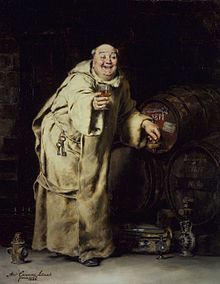
Back Degustace vína Czech Weinprobe German Cata de vinos Spanish Viininmaistelu Finnish Dégustation du vin French טעימת יין HE Cita rasa anggur ID Degustazione del vino Italian 포도주 시음 Korean Wijnproeverij Dutch
You can help expand this article with text translated from the corresponding article in French. (June 2018) Click [show] for important translation instructions.
|

Wine tasting is the sensory examination and evaluation of wine. While the practice of wine tasting is as ancient as its production, a more formalized methodology has slowly become established from the 14th century onward. Modern, professional wine tasters (such as sommeliers or buyers for retailers) use a constantly evolving specialized terminology which is used to describe the range of perceived flavors, aromas and general characteristics of a wine. More informal, recreational tasting may use similar terminology, usually involving a much less analytical process for a more general, personal appreciation.[1]
Results that have surfaced through scientific blind wine tasting suggest the unreliability of wine tasting in both experts and consumers, such as inconsistency in identifying wines based on region and price.[2]
- ^ Peynaud, Émile (1996) The Taste of Wine: The Art and Science of Wine Appreciation, London: Macdonald Orbis, p. 1.
- ^ Hodgson, Robert T., "How Expert are "Expert" Wine Judges?", Journal of Wine Economics, Vol. 4; Issue 02 (Winter 2009), pp. 233–241.